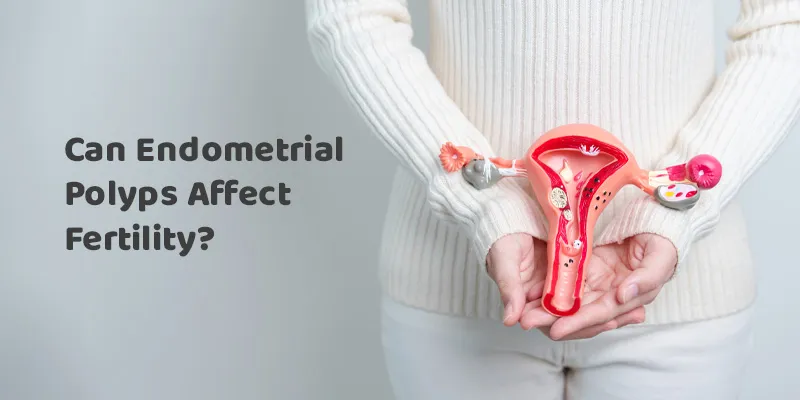Can Endometrial Polyps Affect Fertility?
March 9, 2024
For couples trying to conceive, navigating the world of fertility can be overwhelming. There are numerous factors that can affect fertility, including endometrial polyps. In this blog, we will explore the link between endometrial polyps and fertility, discuss the symptoms to watch for, and highlight available treatment options.
What are endometrial polyps?
Endometrial polyps are growths that originate in the lining of the uterus, also known as the endometrium. These polyps are typically noncancerous and can vary in size, ranging from a few millimetres to several centimetres. While they can occur at any age, they are more common in women who are in their 40s or 50s.
The impact of endometrial polyps on fertility
Endometrial polyps can have an impact on fertility. The presence of these growths can interfere with implantation and pregnancy by altering the uterine environment. Endometrial polyps may also affect sperm movement within the uterus, making it more difficult for fertilisation to occur.
Furthermore, endometrial polyps can lead to irregular menstrual cycles and heavy or prolonged periods. These factors can make it challenging to track ovulation accurately and time intercourse effectively.
Symptoms of endometrial polyps
While some women with endometrial polyps may not experience any symptoms, others may notice:
- Irregular menstrual bleeding, including heavy or prolonged periods.
- Vaginal bleeding between periods.
- Infertility or difficulty conceiving.
- Pelvic pain or discomfort.
It is important to remember that these symptoms can also be indicative of other gynaecological conditions. If you are experiencing any of these symptoms, it is essential to consult with a fertility specialist, who may suggest fertility tests, for an accurate diagnosis.
How are endometrial polyps diagnosed?
If you suspect you have endometrial polyps or are experiencing fertility issues, your doctor may recommend a thorough evaluation and fertility tests. This evaluation may include:
- Pelvic examination: Your doctor will conduct a physical examination to check for any abnormalities.
- Transvaginal ultrasound: This imaging technique allows the doctor to visualise the uterus and detect the presence of polyps.
- Hysteroscopy: During this procedure, a thin, lighted tube is inserted into the uterus to directly examine the uterine lining and remove any polyps if necessary. Hysteroscopy is considered the gold standard for diagnosing and treating endometrial polyps.
Treatment options for endometrial polyps
The treatment for endometrial polyps depends on various factors, including their size, symptoms and whether or not you are trying to conceive. Treatment options may include:
- Observation: In some cases, small endometrial polyps that are not causing any symptoms may be monitored by your fertility doctor without immediate intervention.
- Medications: Your fertility specialist could prescribe hormonal medications, such as oral contraceptives or progestin-releasing intrauterine devices (IUDs), to help shrink or prevent further growth of endometrial polyps.
- Surgical removal: If the polyps are causing symptoms or affecting fertility, hysteroscopic surgery may be recommended. This minimally invasive procedure allows for the removal of polyps while preserving the uterus.
By addressing endometrial polyps, you can improve your chances of conceiving naturally or increase the success rates of fertility treatments like IVF procedure or IUI procedure. Consulting with a fertility specialist is crucial to determine the most appropriate treatment plan for your specific situation.
At Apollo Fertility, we understand the challenges you may be facing on your fertility journey. Our team of experienced fertility specialists provides comprehensive care and guidance tailored to your individual needs. If you have concerns about endometrial polyps or require assistance with fertility tests or treatments, schedule a consultation today and take the first step towards realising your dream of parenthood.
While endometrial polyps can recur, especially in women who are predisposed to developing them, proper treatment significantly reduces the chances of recurrence.
While the exact cause of endometrial polyps is unknown, maintaining a healthy lifestyle, including regular exercise and a balanced diet, may help support overall uterine health.
Yes, it is possible to conceive with endometrial polyps. However, treatment may be necessary to improve your chances of successful conception and pregnancy.